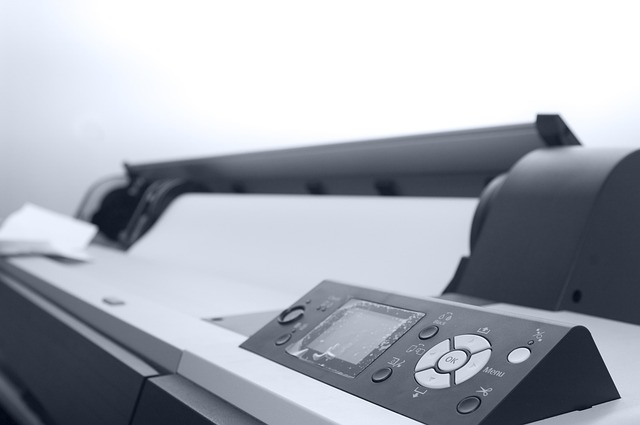# Innovations in AI Technology: Shaping a Smarter Future Across All Sectors and Everyday Life
Artificial Intelligence (AI) has rapidly evolved from a niche area of computer science into a transformative force across various sectors and facets of everyday life. As innovations unfold, AI technology is reshaping industries, enhancing efficiencies, and redefining human interaction with machines. This article delves into the significant advancements in AI, highlighting its impact on diverse sectors and how it is steering us toward a smarter future.
## Revolutionizing Healthcare: Personalized Medicine and Predictive Analytics
In the realm of healthcare, AI innovations are ushering in a new era of personalized medicine. By leveraging vast amounts of data from electronic health records, genetic information, and lifestyle habits, AI algorithms can develop tailored treatment plans for individual patients. This shift from a one-size-fits-all approach to personalized care not only improves patient outcomes but also enhances the efficiency of healthcare delivery.
Moreover, predictive analytics powered by AI is transforming how healthcare providers anticipate and manage diseases. Machine learning models can analyze historical patient data to identify patterns and risk factors, enabling early intervention. For instance, AI systems can predict the likelihood of a patient developing conditions such as diabetes or heart disease, allowing for preemptive measures that can save lives and reduce healthcare costs. The integration of AI in healthcare signifies a monumental leap toward proactive care, ultimately fostering a healthier population.
Another area where AI is making significant strides is in medical imaging. Advanced algorithms are now capable of interpreting medical images with remarkable accuracy, often surpassing human radiologists in detecting anomalies. By automating the analysis of X-rays, MRIs, and CT scans, AI not only accelerates diagnosis but also minimizes the risk of human error. As these technologies continue to evolve, the potential for AI to enhance diagnostic precision and treatment efficacy becomes increasingly evident.
## Transforming Business Operations: Automation and Decision-Making
Businesses across various sectors are harnessing AI to streamline operations and enhance decision-making processes. Automation, driven by AI technologies, is revolutionizing workflows, reducing the burden of repetitive tasks, and allowing employees to focus on more strategic initiatives. Robotic Process Automation (RPA) is a prime example, where software robots execute routine tasks such as data entry, invoice processing, and customer inquiries, leading to increased productivity and cost savings.
Furthermore, AI’s ability to analyze large datasets is changing the landscape of business intelligence. Companies can now leverage AI algorithms to extract insights from data, enabling data-driven decision-making. By identifying trends, customer preferences, and market dynamics, organizations can make informed strategic choices that drive growth and innovation. This shift toward data-centric decision-making not only enhances competitiveness but also fosters a culture of continuous improvement.
Customer service is another domain where AI is making a significant impact. Chatbots and virtual assistants, powered by natural language processing, are increasingly being utilized to provide instant support to customers. These AI-driven solutions can handle a multitude of inquiries simultaneously, ensuring that customers receive timely assistance while freeing up human agents to tackle more complex issues. As AI continues to evolve, the potential for enhanced customer experiences through personalized interactions becomes more pronounced.
## Enhancing Everyday Life: Smart Homes and Personal Assistants
Beyond industry applications, AI technology is also permeating everyday life, significantly enhancing how individuals interact with their environments. Smart home devices, equipped with AI capabilities, are transforming living spaces into interconnected ecosystems. From smart thermostats that learn user preferences to security systems that utilize facial recognition, these innovations are making homes more efficient, secure, and comfortable.
Voice-activated personal assistants, such as Amazon’s Alexa and Google Assistant, have become increasingly prevalent in households. These AI-driven technologies enable users to control various devices, access information, and manage daily tasks through simple voice commands. The convenience offered by such systems is reshaping daily routines, allowing individuals to multitask and optimize their time more effectively.
Moreover, AI is playing a pivotal role in enhancing transportation and mobility. Navigation apps powered by AI analyze real-time traffic data to provide optimized routes, helping users save time and reduce fuel consumption. Autonomous vehicles, still in development, promise to revolutionize transportation by minimizing human error and increasing road safety. As these technologies mature, the prospect of a future with safer, more efficient transportation systems becomes increasingly tangible.
## Conclusion: A Future Driven by AI Innovations
The innovations in AI technology are undeniably shaping a smarter future across all sectors and in everyday life. From revolutionizing healthcare and transforming business operations to enhancing personal experiences through smart technologies, the impact of AI is profound and far-reaching. As advancements continue to unfold, it is essential for stakeholders—be they policymakers, businesses, or individuals—to engage with these technologies thoughtfully and ethically.
Embracing AI innovations presents an opportunity to address some of society’s most pressing challenges, such as improving healthcare access, driving economic growth, and creating sustainable solutions for the environment. As we navigate this evolving landscape, fostering collaboration between technology developers, industry leaders, and the public will be crucial in ensuring that AI serves as a force for good, ultimately leading to a smarter, more efficient, and equitable future for all.











